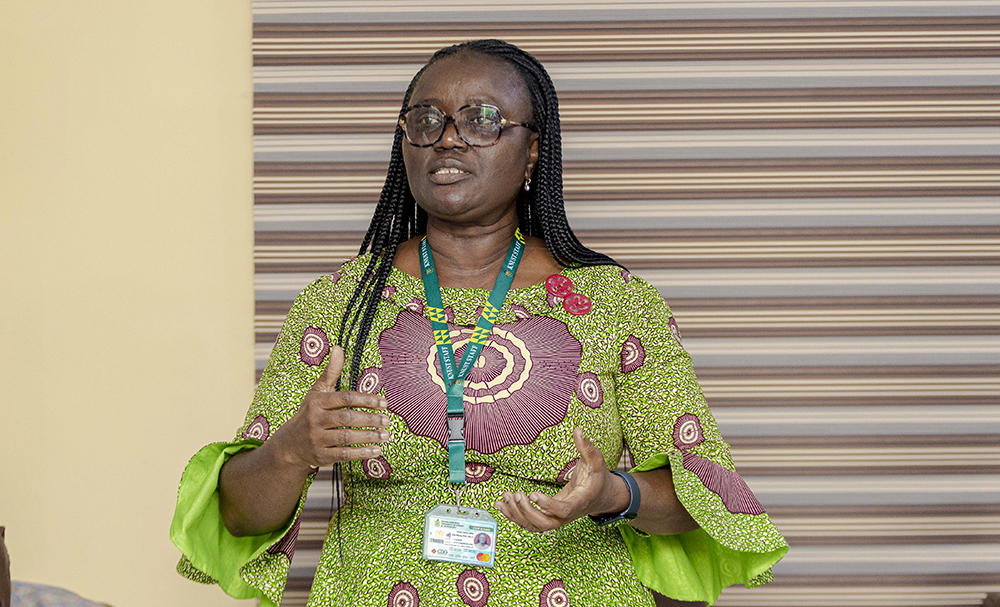The Vice-Chancellor of the Kwame Nkrumah University of Science and Technology (KNUST), Kumasi, Professor (Mrs.) Rita Akosua Dickson, on her two-day working visit to the Obuasi Campus of the University, paid a courtesy call on Chiefs in Adansi, New Edubiasi, and Akrofuom on Thursday, 16th February 2023. The purpose of the visit was to interact with the Chiefs and seek their support and cooperation in the development and advancement of KNUST's Obuasi Campus.
The Chief of Adansi, Nana Bonsra Afriyie II, expressed his admiration at seeing a woman occupy the position of Vice-Chancellor at one of Ghana's top universities. He, further, noted that her appointment would serve as a source of inspiration to other women and ultimately improve the education of young girls across the country.
Nana Asare Bediako, a member of the Akrofuom Traditional Council noted that initially, the Council had agreed to donate 50 acres of land to the University, but upon further consideration and analysis of the potential impact and benefits it could bring to the community, the Traditional Council arrived at a decision to donate an increased allocation to 100 acres of land for the expansion of the Obuasi Campus. He added that the land donation will serve as a significant milestone in the expansion of the economy of the communities within the traditional area at large, creating new avenues for socio-economic growth and development.

The Vice-Chancellor, in her response, expressed deep gratitude to the chiefs for their warm welcome. She acknowledged the Akrofuom Traditional Council for their magnanimous gesture in donating the land to the University. She assured the Chiefs that KNUST will be committed to utilising the land for the betterment of the community, with a focus on improving and enhancing the teaching and learning experience.
Professor (Mrs.) Dickson further appealed to the chiefs to provide more lands to enable the expansion of the University and enhance accessibility. She noted that education is a crucial tool for national development and that, it is necessary to ensure its availability and accessibility to all, especially those in remote and underprivileged communities.

















